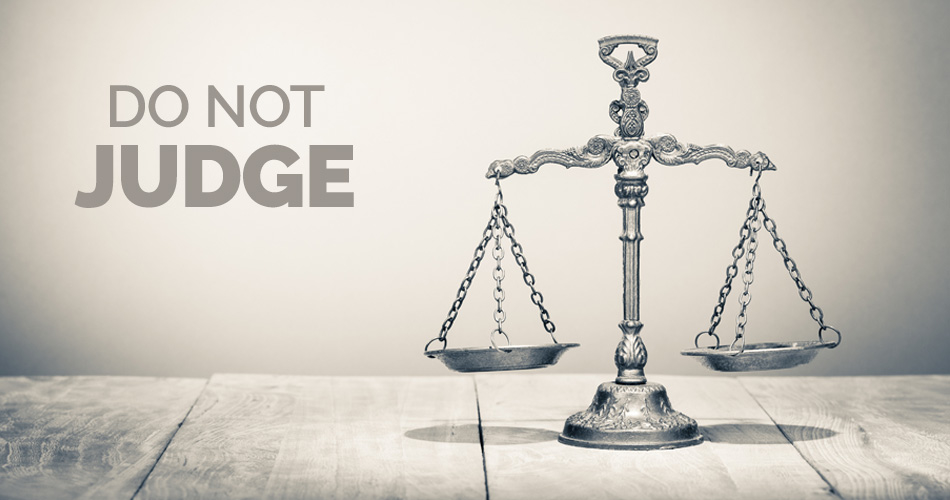Should we judge others?

“Do not judge, or you too will be judged.” (Matthew 7:1, emphasis mine)
This has to be one of the most quoted – and most misunderstood – verses in the Bible. It’s the verse that pops up in the comment section of any social media post about how something is wrong, or sinful, or unwise.
It’s the first thing out of the mouth the minute any of us feel the slightest bit of discomfort at the words spoken to us by another person. It’s the go-to tool for deflection that can help us squirm out of an uncomfortable conversation about where our lives may be falling short of the mark.
But Jesus never meant it that way, and here are a few reasons that prove it.
Number One: “Do not judge” is actually a judgement statement. Imagine Jesus breaking His own command! If He meant for us to never judge, then His comment about how we should stop judging was a judgement that we – and even He – should never have made.
Number Two: Jesus was teaching us more about HOW to judge than prohibiting us FROM judging. Ironically, His teaching was a call for us to judge ourselves SO THAT we’d be able to judge others.
Number Three: All of us actually need judgement, even though most of us rarely want judgement. I need people who can see my life more clearly than I can to make judgements about me. I need doctors telling me that I should change my diet so I won’t develop a disease. I need Law Enforcement Officers telling me to slow down so I won’t have an accident. I need people with humility telling me that I’ve got a speck in my eye that is keeping me from seeing my life correctly. All of us develop blind spots over time, and we need people who are courageous enough to call them out to, well, call them out. If my response to that is always “Do not judge,” then I’m gonna end up in a ditch somewhere. Like I said, we all need judgement, and even more so in the areas where we don’t want it.
Number Four: If we judge correctly, judgement helps people. The second word of the fifth verse in the seventh chapter of Matthew gives us the key:
You hypocrite, first take the plank out of your own eye, and then you will see clearly to remove the speck from your brother’s eye. (Matthew 7:5, emphasis mine)
While it is possible to receive judgement from others (especially as we become more and more emotionally healthy!), it’s almost impossible to receive judgement from a hypocrite. Jesus knew this, and used the words “do not judge” to grab our attention so that he could teach us the dangers of judging improperly.
If we judge hypocritically, at least two things happen, and neither of them is good. First, our judgement will be ignored, not because it isn’t true or accurate, but because the person we’re warning won’t be able to get past the obvious hypocrisy in our lives to hear it. “Um, you’ve got a pretty big piece of wood in your eye, and you’re calling out the speck in mine??? You’re kidding, right?”
Second, our judgement can be dangerous. Please understand the end of that verse: God wants the speck removed, and He wants us to be speck removers. But He knows that if we can’t see clearly, then our attempts to help can actually become harmful. Imagine how you’d feel if the last thing you saw before goin out under anesthetic was a surgeon with a patch over one eye and pink eye in the other! You’d still want the surgery, but you’d also want a different surgeon.
Let’s wrap this up with a final observation. Let’s allow Holy Spirit to examine us first, to show us where we need healing before we start telling others all the places where they need it. Let’s get that plank out first, and then let’s use our new, corrected vision to help others see better, too.









Leave a Comment